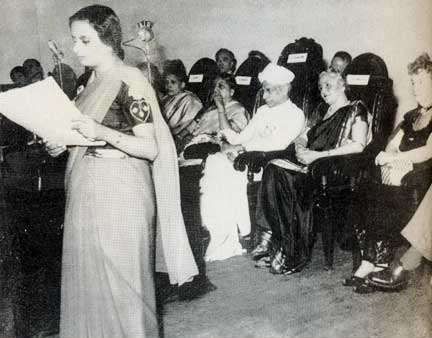Blog
Planned Parenthood, 1965

Most Americans probably believe that Planned Parenthood is a quintessentially American organization, especially since we have been seeing it in the news so frequently lately. But in fact, the Planned Parenthood Federation of America is a part of an umbrella organization, International Planned Parenthood Federation. Lady Dhavanthi Rama Rau served as president and then president emeritus of IPPF, and spoke with Studs in 1965, two years into her presidency. In 1965, Indira Gandhi, Golda Meir, and Margaret Thatcher were yet to be elected Prime Minister of their respective countries; Roe v. Wade had not been heard in the U.S. Supreme Court; and it was still legal in the U.S. to fire a woman because she was pregnant. Lady Rama Rau's work was groundbreaking both for women and in terms of considering the future of our planet and our population. Unlike in twenty-first century America where we see birth control as primarily an issue of women's rights, Planned Parenthood arose in India for an entirely different reason: the convergence of population growth, poverty, and starvation. Lady Rama Rau talks about the three million people who were killed during the 1943 famine in Bengal, and goes on to remind listeners that
Over 460 million population [of India], 40%, live at a starvation level. They do not die. But to live under those conditions, where you never go to bed with a full meal. You do not get a full meal from year's end to year's end... 40% of India's population lives at that level.
Studs goes on to ask Lady Rama Rau about India's government-sponsored and volunteer-run planned parenthood programs. She talks about the influence of Margaret Sanger on the programs, and about the challenges that face the programs: illiteracy, poor sanitation, poverty, and superstition. Ruminating on the obstacles to birth control put up by both formal religions and the superstitions of rural India, Studs asks,
The question is, what is God's will if we value God as someone who values man?
Lady Rama Rau explains that for Hindus and Muslims, religion is not a factor in choosing to use birth control. In a related conversation, they discuss countries besides India with successful family planning programs, the lack of a population department in the United Nations, and the choices that impoverished Catholic nations face (with a reference to the anticipated results of Vatican II).
Photo by Naseer Ahamed

